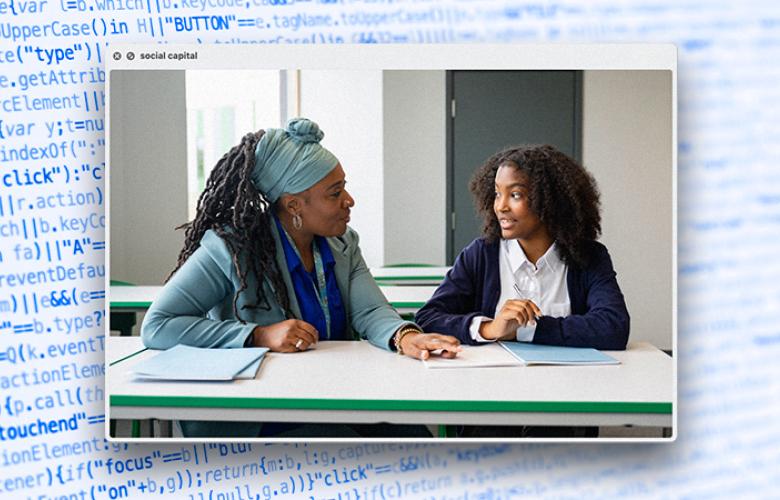
In the fast-paced world of STEM and technology, the underrepresentation of Black women is a pressing concern, affecting education, job opportunities, and roles in major tech companies. Tackling this issue requires more than just technical skills; it involves building essential social capital within the tech world.
Enter Google Code Next’s Team Edge, a program designed to address this problem. Geared at supporting high school students from underrepresented groups, the initiative empowers them with essential tech skills and experiences to navigate paths toward tech careers. The program emphasizes coding proficiency, understanding professional culture, and building meaningful connections within the tech industry.
However, while many Black girls in the program express intentions to attend college, fewer show an interest in STEM, especially computer science. This finding highlights the complex challenges faced by Black women in STEM, with early barriers rooted in race- and gender-based discrimination, perpetuating differences in interests, goals, and achievements compared to their White male counterparts. Structural racism and sexism further contribute to stress, creating additional obstacles for Black women pursuing STEM careers.
Recognizing the importance of social connections in overcoming these challenges, research on social capital in STEM education emphasizes the crucial role of networks in supporting students, especially Black girls.1 Social capital theory highlights the importance of resources within students’ social networks, including relationships with peers, role models, and connections within their community. Recent research introduces the concept of “tech social capital,” providing a lens through which to examine how Google Code Next helps Black girls build and expand their tech social capital, thereby improving their prospects in technology-related careers.2
The heart of Code Next’s mission is to nurture and support the next generation of Black and Latinx tech leaders by helping them to cultivate their tech social capital. The program uses a multifaceted approach, including community connections, mentor-mentee relationships, and diverse courses designed to develop essential technology-related skills. Focusing on seven key traits—creative confidence, computational thinking, teamwork, effective communication, cultural awareness, technology fluency, and a strong knowledge base—Code Next implements strategic initiatives, such as selecting multicultural instructors, involving tech professionals as mentors and speakers, fostering peer relationships, and utilizing Google lab spaces, all while actively engaging with students as well as with their families.
Surveys and interviews spanning 2016 to 2021 offer insights into the impact of Google Code Next Team Edge on young Black women. The findings suggest the program significantly helps them to expand their tech social capital by establishing meaningful connections with peers, mentors, instructors, and guest speakers, ultimately connecting them with broader technology networks. The intentional inclusion of instructors and adults from underrepresented groups creates an environment where students can explore their career interests without judgment, fostering a sense of community that motivates them to pursue STEM careers.
In conclusion, Code Next has left a lasting impression, introducing these young women to computer science, shaping their skills, and providing a supportive community within the tech industry. The program empowers young Black women to pursue goals in STEM and fosters diversity in the ever-evolving landscape of technology and innovation.
**************************************
A newly released paper, authored by Dr. Camille Ferguson, EDC colleagues, and Google partners, presents a comprehensive exploration of the program’s impact and findings. For a more in-depth understanding, you can access the full text version of the paper here: https://dl.acm.org/doi/10.1145/3632295.
| Camille Ferguson is an experienced educator and a senior research associate at EDC’s Center for Children and Technology. Her work focuses on the social context of learning and education policies aimed at educational equity, particularly for traditionally underrepresented youth living in urban settings. |
1Ferguson C., Light D., & Thomas V. (2020) How to help underrepresented young people in computer science feel successful [Conference paper]. 14th International Technology, Education and Development Conference 2020 Virtual Conference. Valencia, Spain. DOI:10.21125/inted.2020.1896
2 Ferguson, C. A. (2021). The formation of tech social capital in Black and Latinx adolescents in an urban computer science program: A case study. https://doi.org/doi:10.7282/t3-v6ee-4r27

Comments
Add new comment